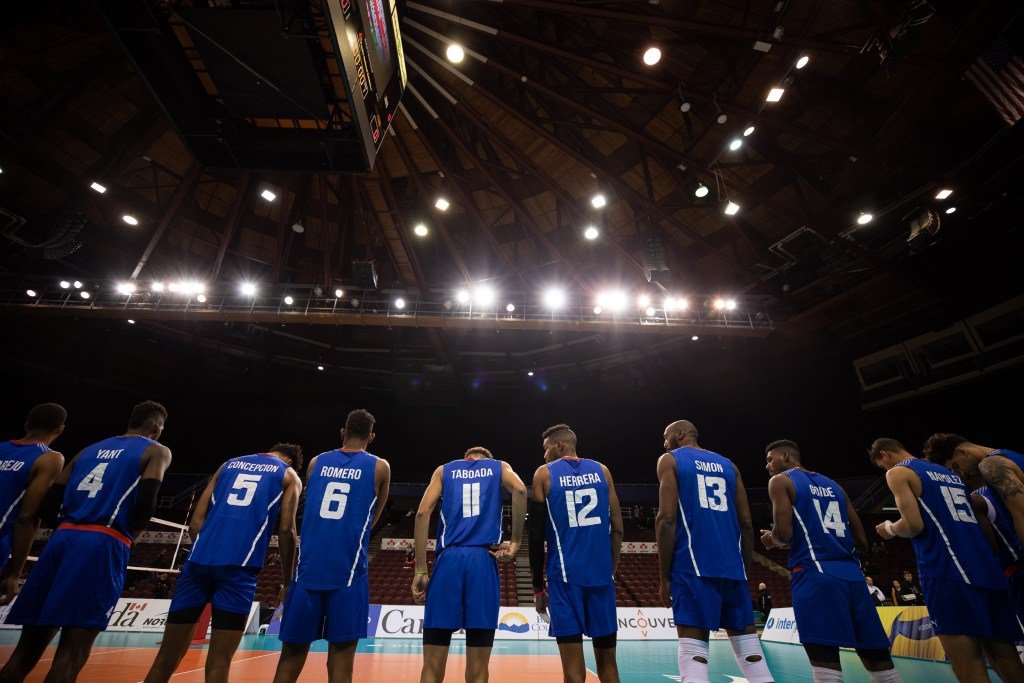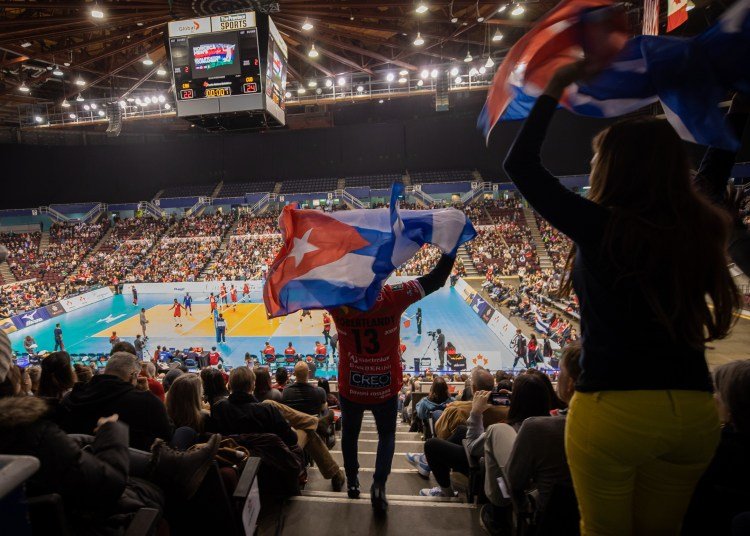Cuba will probably have a champion in men’s volleyball at the Tokyo Olympics. Osmany Juantorena (Italy), Wilfredo León (Poland) or Yoandy Leal (Brazil) can easily climb to the top of the summer podium in the Japanese capital under the flags they now defend.
They, somehow, will be a kind of comfort for volleyball fans on the island, who have seen how the national team has been left out of the Olympics, after falling dramatically in the qualifying tournament in Vancouver, Canada.
It will take a long time and no one will forget the setback before the hosts in the Pacific Coliseum, a cold and distant enclosure where the Olympic dreams were buried of a nation with seven summer appearances, including that of Montreal 1976, when they won the bronze medal.
But beyond our record, this setback cannot be seen as an isolated incident. After all, Cuban volleyball has spent a whole decade trying to get back on their feet, seeking to reinvent itself after many unfortunate events.
The almost full exit of the generation that won the world runner-up in 2010, or the case of rape in Finland that brought six players to justice shortly before the Rio 2016 Olympic Games, are some of those events that marked the destiny of the sport during the last ten years.
In all this time, moreover, it has been affected by the exodus of secondary figures who were called to maintain the balance of national teams at all levels, as well as the political stubbornness that has prevented first, and later complicated, the process of reintegration of many of those same players, already hardened and with the total will to return to the four-letter team.
Perhaps the impact of these misfortunes could have been mitigated, to a certain extent, with a victory in Vancouver and the subsequent Olympic qualification, but unfortunately, the overconfidence and lack of authority to strike the final blow came to light again. After losing as they did, it will undoubtedly difficult for them to get up and move on.
However, Cuba currently has a solid base of virtuoso, powerful players with a lot of room for growth, which, if not fragmented, has a promising future during the next Olympic cycle, even after losing in Vancouver.
The question is to avoid, precisely, stampedes that spoil the course of this group, in which boys with enormous talent like Marlon Yant, Roamy Alonso, Jesús Herrera, Yohan León, Osniel Melgarejo or Miguel Ángel López, all with contracts with foreign clubs and with aspirations to continue polishing their game at the highest possible level, can come together.
Keeping them together will depend, almost 100%, on the tact of the Cuban Federation when it comes to managing its contracts, looking for the best options, both economically and professionally.

It would be useless to accommodate the boys in medium or low level scenarios just because they pay well or because we already have established contract channels. That move would only lead to stagnation of the players, who wouldn’t be able to fully develop their capabilities.
Nor would it help to send our volleyball players to professional adventures that are not paid in time and form, something that has already happened in Argentina with the Gigantes del Sur, a club that still owes money to some players.
Meanwhile, the glances cannot focus solely on the individual training of the players. Volleyball is a collective sport and, therefore, along with the boys, the technical direction must also improve, in need of taking steps forward, assuming the modern guidelines of the sport, enriching strategies and training methods.
This collective growth will depend, in turn, on the incursion into more important tournaments. That is why next June’s Challenger Cup in Portugal is so significant, where Cuba will have the opportunity to fight for the only ticket available to the 2021 League of Nations (VLN).
From now on all eyes and efforts should be focused on Portugal. Qualifying for the VLN is vital to begin the Olympic cycle on the right foot, competing against the best national teams and players on the planet.
In previous years, our teams faltered and failed to finalize the pass in the Challenger Cup, but now, a priori, there are more options, judging by the quality leap the team has taken―regardless of whether the results do not yet reflect it―, especially after the return of Robertlandy Simón.
The multi-award winning center has given a plus to the team, which hopes to continue counting on his services, something that still cannot be guaranteed after it lost its last chance to participate in an Olympic Games.

For many, being in Tokyo was Simón’s only motivation in his return to the national squad, but in an informal dialogue with the player on the outskirts of Sports City a few months ago, he mentioned the possibility of also helping Cuba to enter the VLN.
Simón knows perfectly well what this would imply and has always shown an enormous commitment, but if he does not continue, it would be necessary to respect his decision and bid him farewell as what he is, one of the great stars of world volleyball and pride of Cuban sport.
Regardless of whether Simón continues or not, the Cuban Federation needs to direct its efforts to interact with other professional players who are part of the great diaspora that today works in the most dissimilar international clubs.
Managers cannot bet on waiting, they cannot sit down, they cannot give up dialogue and rapprochement, always with maximum respect. If in the end they are able to add other men with more experience in the professional arena, the national team’s competitiveness will increase, the options to stand up to higher level teams and also to return to stellar planes will grow. Paris 2024 may not be as far away as it looks.










